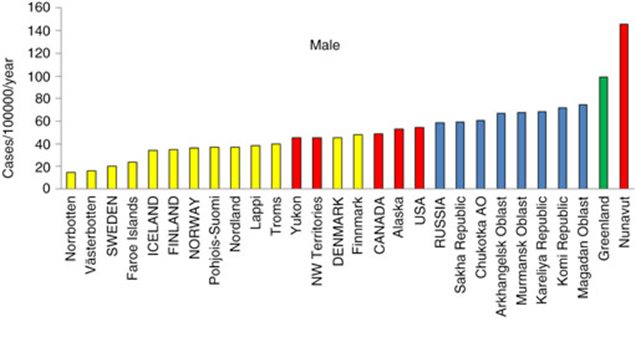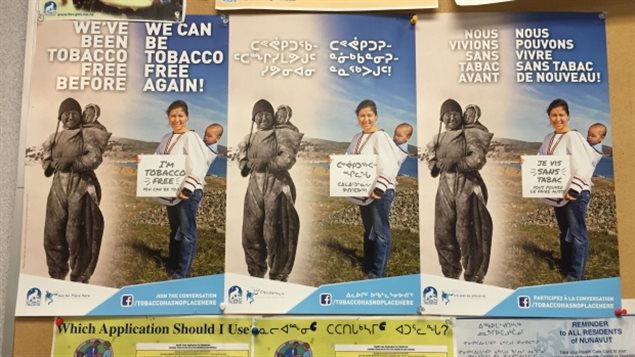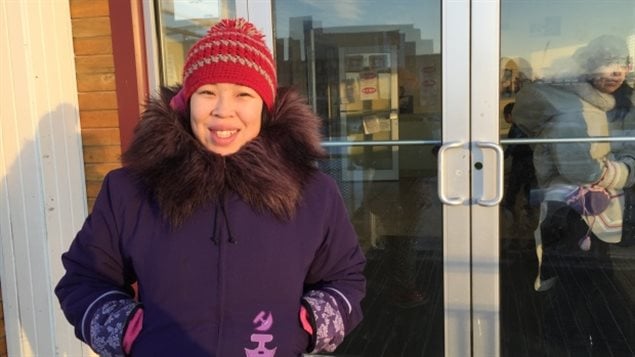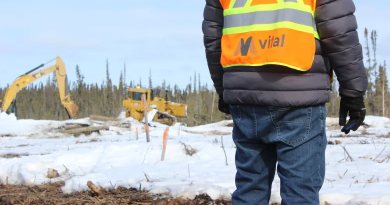Cancer rates skyrocketing in Arctic, especially Canada

Cancer was once a very rare occurrence among indigenous people in the far north. Now almost everyone has experienced a death of a loved one from the disease.
A new international study shows that in the circumpolar region, rates of cancer have increased dramatically in the period from 1989 to 2008.
It also shows that Inuit are “at extreme risk” for lung and colorectal cancers, as well as some other relatively rare cancers.
The study was published in the International Journal of Circumpolar Health, and entitled “Cancer among circumpolar populations: an emerging public health concern”

The study involved researchers from the School of Public Health at the University of Alberta in Canada, the Alaska Native Epidemiology Center and the Alaska Native Tribal Health Consortium, Anchorage, USA; the Department of Clinical Oncology, Rigshospitalet, Copenhagen, Denmark; and the Department of Public Health, University of Helsinki, in Finland
Much of the problem appears to be due to a very high rate of smoking, which is several times higher than the smoking rate in southern areas.
Statistics Canada puts the rate at over 62 percent in Nunavut, and 60 percent among the Dene of the Northwest Territories, while the national average of Canada is now down around 18 percent.

A recent survey found for example that nine out of ten pregnant women in Canada’s northern territory of Nunavut smoke in spite of clear warnings of the health danger to themselves and unborn children.
Quoted in the National Post newspaper Natan Obed, president of Inuit Tapiriit Kanatami, the national Inuit organization says, ““Smoking provides huge challenges to our health system, and it has huge societal impacts”.

The report concludes that “from a global perspective, the circumpolar Inuit and Athabaskan/Dene have rates for several cancer sites that exceed all other regions in the world. An increasing trend is also evident, and represents a change from a few decades ago when the risk of cancer was generally below that of non-indigenous populations in the same region.”
Additional information-sources



